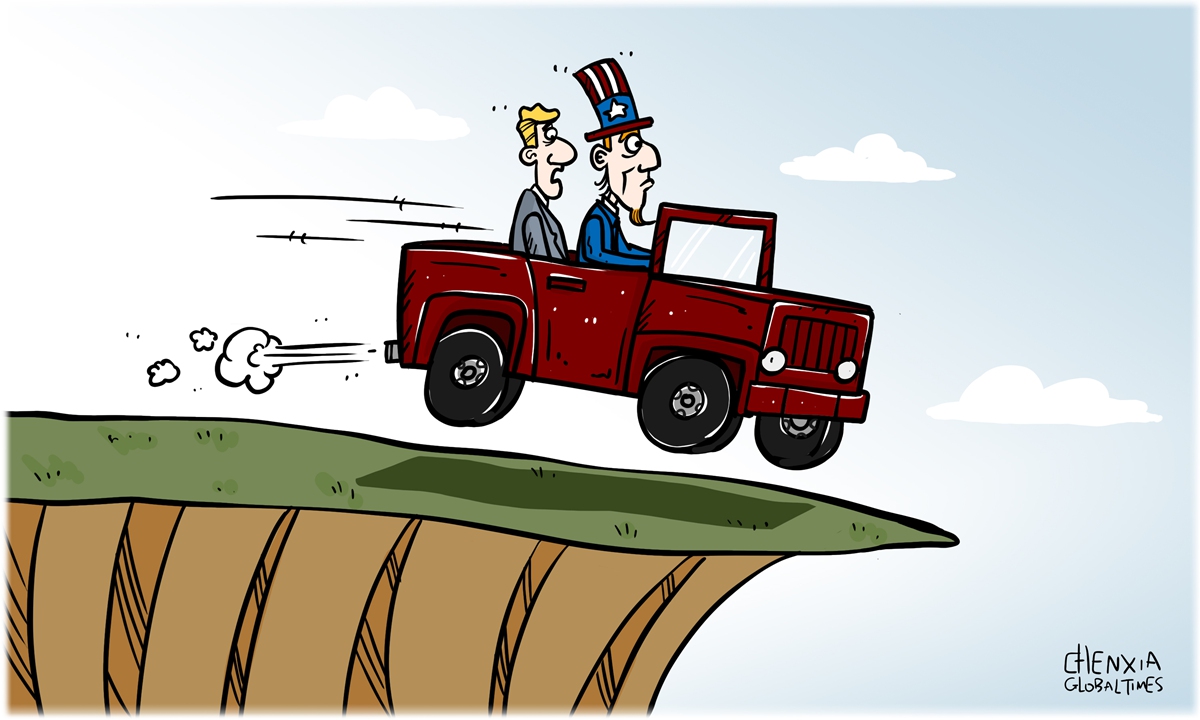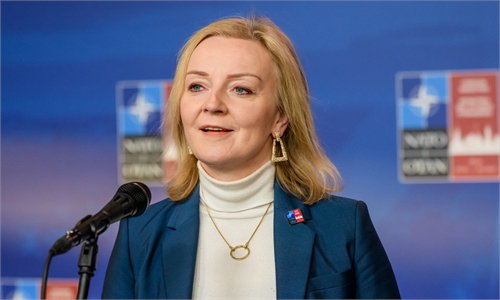UK secretly talks ‘China threat’ over Taiwan question, but one always pays price for depending on the US

Illustration: Tang Tengfei/GT
The Financial Times disclosed Sunday that Kurt Campbell, the White House Indo-Pacific coordinator, and Laura Rosenberger, the top US National Security Council China official, held a meeting over Taiwan island with UK representatives in early March, discussing how to cooperate more closely to reduce "the chances of war with China" over Taiwan island and to explore conflict contingency plans for the first time. The meeting spanned from how the UK could do more "diplomatically" with the Taiwan island to talks about what role the UK would play if the US "ended up in a war with China."
There are two reasons for the UK to strengthen its cooperation with the US even on issues that concern China's bottom line. On the one hand, the UK is still in a period of post-Brexit strategic confusion, readjusting its "global layout," which is essentially about relying on the US as well as binding itself more tightly to the US. After figuring out what the US thinks, the UK will take the lead to prove it is useful to Washington.
It can be seen from British Prime Minister Boris Johnson's statements, whether on the Indo-Pacific issue, the Taiwan question, the Hong Kong issue, or the Russia-Ukraine crisis, that the UK is rushing to the forefront to speak for the US, which is related to the decline of the UK's strategic position after Brexit. Before that, the UK could still play the role of a coordinator between both sides of the Atlantic. However, the UK will have to prove itself useful if it wants to continue being close to the US. And one should always pay the price to depend on the US.
The UK understands this, and that's the reason why it has been lately acting radically and talking recklessly, with more ideological overtones, contrary to the British tradition of pragmatic diplomacy.
On the other hand, it's true that the West is now intentionally increasing its efforts to exaggerate the "China threat" on various issues, promoting the idea that "China is a destabilizing factor and a creator of danger in the world." This shows the West's attempt to maintain its hegemony and vested interests despite its weakness and lack of confidence. The common interests have prompted Western countries, such as the UK, to follow the US and intensify coordination.
This is exactly what the US wants under such circumstances. In the FT report, sources close to the matter revealed that the Biden administration was providing some allies with intelligence on Taiwan that was previously classified, which is for the following reasons.
First, the US intention for the current Russia-Ukraine conflict is to kidnap Europe to confront Russia, while pulling itself back to the Asia-Pacific region to gather its Asian allies to deal with China. But the conflict is currently in a stalemate, and neither Russia nor the US has reached its strategic goal, and both sides are deeply involved in this region. Therefore, the US, knowing its incapability of confronting China alone, needs more regional allies to invest in the Asia-Pacific region to compete with China. As a result, allies like the UK in particular were brought in.
Second, the US will not give up the Taiwan card since it knows the Taiwan question concerns China's core interest. But the US, in the meantime, does not dare to play this card lightly, fearing that it cannot bear the cost after really provoking China. Therefore, the approach it takes is to find some accomplices instead to test China's reaction and bottom line with belligerent rhetoric.
Such provocations and the following pressures on China to make it accept the West's exploitation is out of the traditional Western logic of realism. As to whether it will really step out of line in the future, the UK, quite cunning in its diplomacy, is more likely to gently probe China's bottom line, trying to force China to first make a mistake and prove that "China is indeed a disruptor of order." As an island country, the UK has its own way of surviving, which is to be both an accomplice and trying not to be cannon fodder, carefully finding the right position.
The author is a professor at the School of International Relations of Beijing Foreign Studies University. opinion@globaltimes.com.cn

